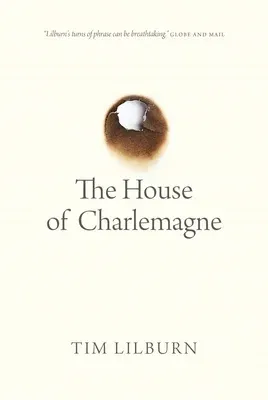Tim Lilburn
(Author)The House of CharlemagnePaperback, 15 February 2018

Qty
1
Turbo
Ships in 2 - 3 days
In Stock
Free Delivery
Cash on Delivery
15 Days
Free Returns
Secure Checkout

Part of Series
Oskana Poetry and Poetics
Print Length
85 pages
Language
English
Publisher
University of Regina Press
Date Published
15 Feb 2018
ISBN-10
0889775303
ISBN-13
9780889775305
Description
Product Details
Author:
Book Format:
Paperback
Country of Origin:
US
Date Published:
15 February 2018
Dimensions:
21.34 x
13.97 x
0.51 cm
Genre:
Canadian
ISBN-10:
0889775303
ISBN-13:
9780889775305
Language:
English
Location:
Regina
Pages:
85
Publisher:
Series:
Weight:
90.72 gm